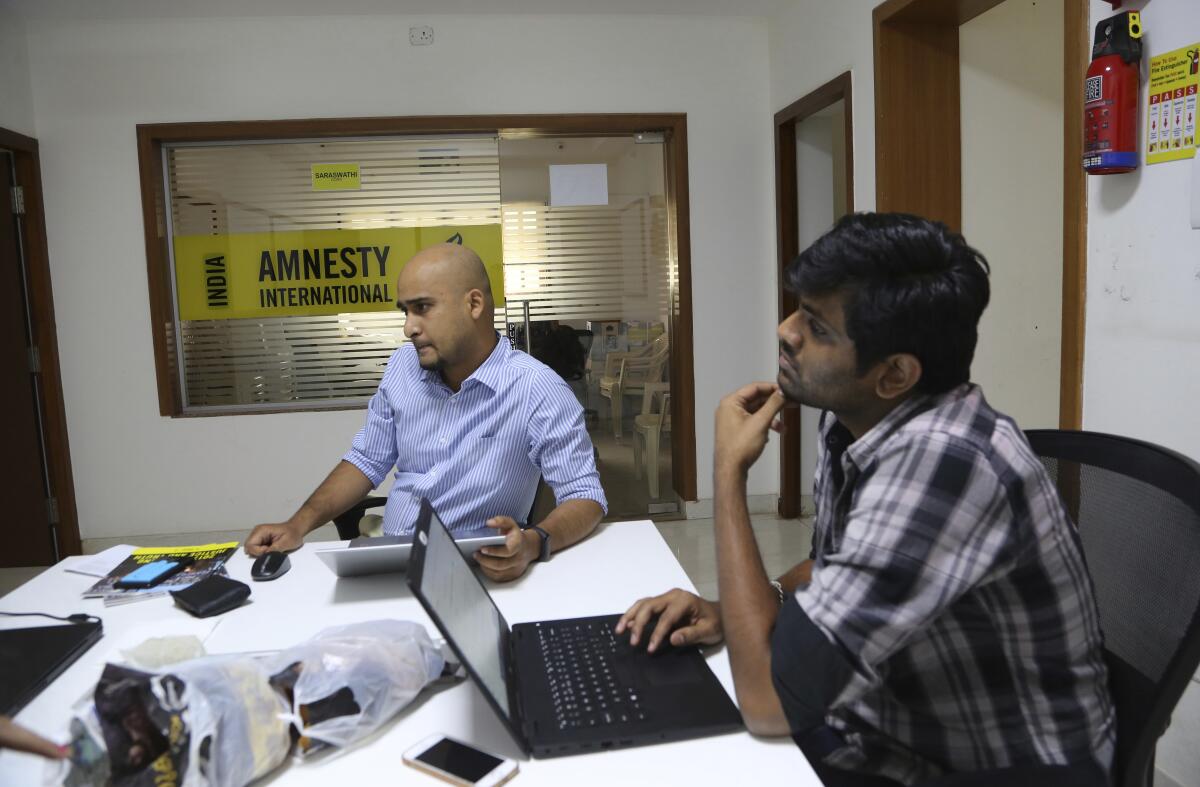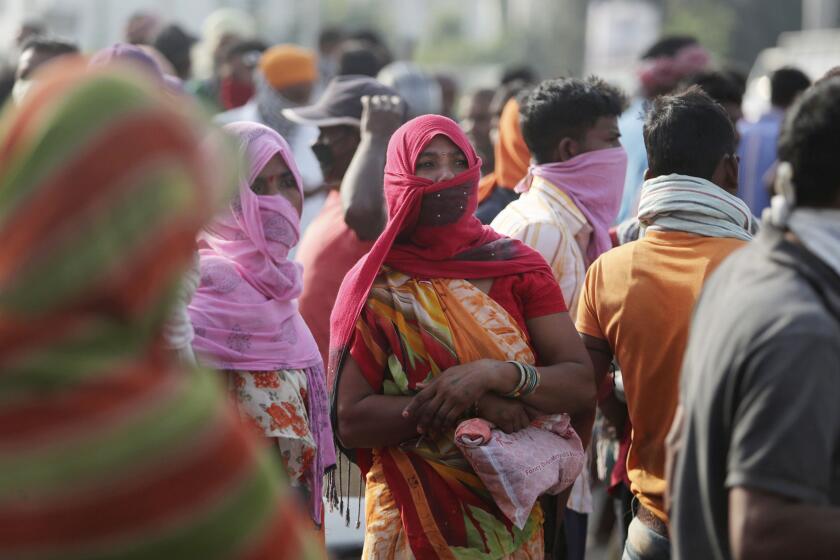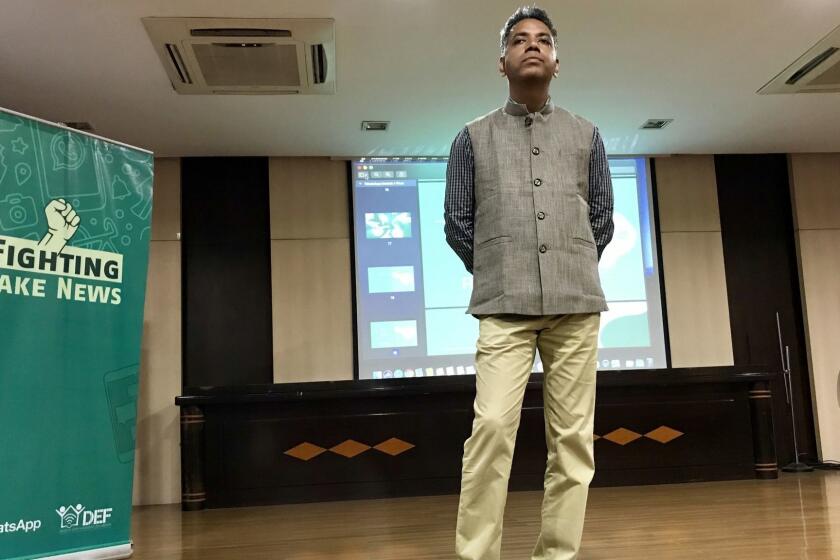Amnesty International halts work in India, blaming government ‘witch hunt’

- Share via
SINGAPORE — Amnesty International has suspended its work in India after Prime Minister Narendra Modi’s government froze the group’s bank accounts over alleged fundraising violations, the human rights organization said Tuesday.
The Nobel Peace Prize-winning watchdog said it has been the target of an “incessant witch hunt” by the Indian government for its work, including campaigning for the rights of citizens in the disputed territory of Kashmir and documenting police abuses.
The group has been hounded by Indian investigators for the past two years, is regularly vilified in the government-friendly media and was finally forced to lay off staff members in what it described as a growing climate of repression.
“For a movement that has done nothing but raise its voices against injustice, this latest attack is akin to freezing dissent,” Avinash Kumar, executive director of Amnesty International India, said in a statement.
The suspension of work by one of the world’s best-known rights groups was the latest blow to freedom of expression and civil liberties in India, where critics say Modi’s Hindu nationalist government has used its extensive powers to marginalize or silence independent voices — especially those speaking out for the rights of the Muslim minority. India, the world’s second-most-populous country, is home to more than 100 million Muslims.
Since Modi came to power in 2014, attacks against Muslims have been on the rise. Last month, Amnesty published two investigations that detailed security forces’ harsh crackdown in the Indian-held portion of Kashmir, the country’s only Muslim-majority territory, and police complicity in riots in New Delhi in February that killed 53 people, most of them Muslims.
India’s coronavirus tally has reached 6 million cases, double the total recorded barely a month ago and second overall only to the U.S.
The Indian government did not immediately confirm whether the group’s bank accounts had been frozen. Officials have previously alleged that millions of dollars from Amnesty International’s accounts in Britain had been wired to the India office without government permission, a violation of the financing laws for nonprofit groups.
The financing law in effect allows the government to block foreign funding for groups it doesn’t like. Modi’s government has wielded the law against groups advocating for the rights of Dalits (the underclass formerly known as “untouchables”), U.S.-based Christian evangelical organizations, the environmental group Greenpeace and others.
Amnesty said that it has not violated any laws and that its work in India is funded through domestic contributions that are not subject to the foreign-funding law.
Despite years of raids and public threats, the government has yet to formally charge Amnesty with any crimes.
The video showed two helmeted men on a motorcycle circling a group of children playing cricket in the street.
“The fact that the government is now portraying this lawful fundraising model as money-laundering is evidence that the over-broad legal framework is maliciously activated when human rights activists and groups challenge the government’s grave inactions and excesses,” the group’s statement read.
Amnesty said it would file a lawsuit demanding that the bank accounts be restored, but a decision could take months in a plodding legal system that is moving even more slowly because of COVID-19 restrictions.
The group’s bank accounts were blocked on similar grounds in 2018, then restored by a court order.
In October 2019, Amnesty officials testified before a congressional panel in Washington on human rights in Kashmir after India revoked the territory’s special status earlier in the year. Two weeks later, Indian government investigators raided the group’s offices in the southern city of Bangalore and the residence of one of its directors.
News Alerts
Get breaking news, investigations, analysis and more signature journalism from the Los Angeles Times in your inbox.
You may occasionally receive promotional content from the Los Angeles Times.
Aakar Patel, who headed the group’s India office from 2015 to 2019, said the government has portrayed human rights groups as enemies working to discredit the country, allegations that are propelled by a jingoistic media eager to label critics as “anti-nationals.”
“The state uses every possible instrument and lever it has to attack, demonize, discredit and shut down civil society organizations,” Patel said.
“It has become an offense to work on rights.”
More to Read
Sign up for Essential California
The most important California stories and recommendations in your inbox every morning.
You may occasionally receive promotional content from the Los Angeles Times.













